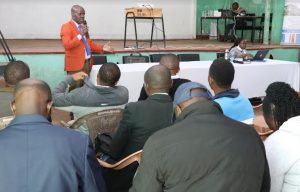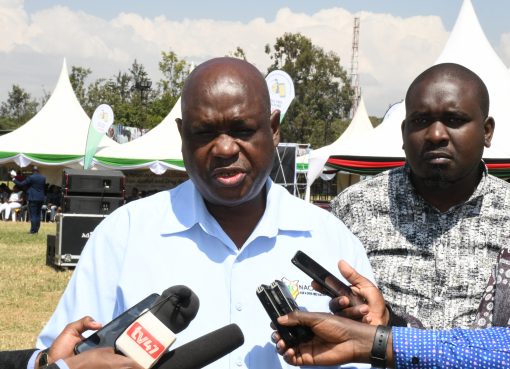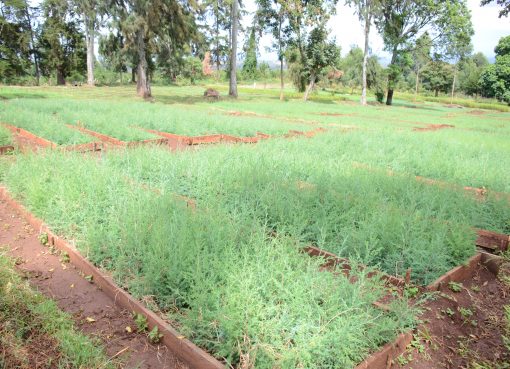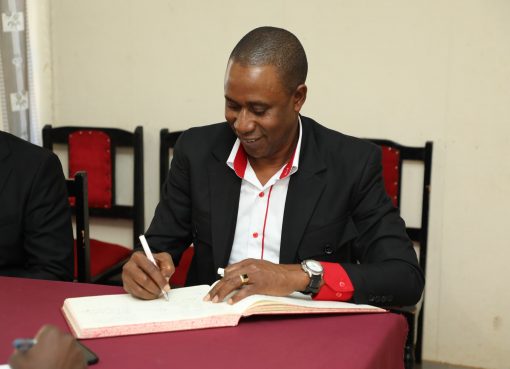Climate change is a complex, global, and occasionally politicised issue which needs an informed populace to formulate mitigation strategies and tackle its devastation.
The Centre for Mathematics, Science, and Technology Education in Africa (CEMASTEA) has acknowledged that most teachers lack appropriate information on the subject, which creates a gap in the production and dissemination of knowledge on climate change to learners.
As a step towards remedying the situation, the Center has embarked on training secondary school teachers on ways to tackle climate change in their schools and classrooms.
Head of Secondary School Education at CEMASTEA Livingstone Makanda indicated that the first batch of 104 teachers drawn from 12 counties had completed a week-long training on climate change mitigation and information dissemination at Menengai High School in Nakuru.
The training covered the interconnected issues of climate change, including environmental conservation, waste management, recycling, energy conservation, flood mitigation, and Indigenous knowledge.
While noting that the participants had also been equipped with knowledge to counter misinformation about climate change, Makanda stated that CEMASTEA was taking the initiative since teachers play a key role in shaping change in society through research, training future decision-makers, and contributing to public awareness of issues.

“Several reviews have found teachers around the world don’t always have the knowledge and training they need to tackle climate change in their classrooms. Some of our teachers have an “insufficient grasp” of climate science despite their favourable attitude towards environmental education,” stated the official.
He added, “Teachers need to be well-prepared to teach climate change, which means having a strong understanding of the science and being able to address the range of student emotions that may arise.”
The participants were equipped with skills to teach climate change using a variety of subjects, including science, social studies, and English-language arts.
Makanda observed that there are a number of effective teaching strategies that can be used to teach climate change, such as using hands-on activities, engaging with expert speakers, and having students conduct research projects.
The effects of climate change, he pointed out, continue to be seen and felt around the world, adding that intense heatwaves, severe flooding, droughts, and damaging storms are becoming more common.
By retooling teachers to come up with climate change-related programmes in schools, he noted that it will help young people cope better with the reality of global warming, both practically and psychologically.
The United Nations says that climate change studies should be part of the curriculum in all schools by 2025.
A study by the United Nations Educational, Scientific, and Cultural Organisation (UNESCO) analysed education plans in nearly 50 countries and found that more than half make no reference to climate change. Only 19 per cent made any mention of biodiversity.
Climate change also poses significant risks to food security through crop failure, aided by pests, diseases, and unpredictable rain patterns.
Kenya’s National Climate Change Policy (Sessional Paper 3 of 2016) emphasises climate change mainstreaming in all sectors to build adaptive capacity and resilience. Incorporating climate change into education programmes is therefore a necessity.
Makanda informed the participants that integrating climate change into their school programmes must focus on multiple disciplines, including agriculture, environmental science, economics, and policy, to foster holistic understanding.
Nakuru County Quality Assurance and Standards Officer Dr. Samson Arodi noted that with more climate change information come career opportunities for teachers and learners in environmental conservation, renewable energy, and climate science.
Dr. Arodi indicated that education is key to building capacity on policies around climate change, as a knowledgeable population can push for the implementation of policies and more budget allocation to climate mitigation and adaptation at local and national levels, saying these would help address immediate and long-term climate challenges.
The officer said teachers are key in achieving these goals because they actively participate in curriculum development, especially at the Kenya Institute of Curriculum Development.
“They can use extracurricular activities such as drama and music festivals, besides environmental clubs and science contests, to build capacity and encourage innovative climate solutions,” he indicated.
He observed that through teachers, there have been skillfully crafted messages about agriculture, forests, wildlife, calamities, and freshwater sources, besides the health implications of changing weather patterns and their link to diseases like malaria, dengue, and cholera.
At the same time, Dr. Arodi said that since Kenya is a signatory to the Paris Agreement, educating more people about climate change instills a sense of global responsibility, adding that teachers are Kenya’s sure bet to achieve these goals.
“Kenya must consistently train teachers on climate change and mitigation and let them equip the next generation with the knowledge and skills needed to mitigate and adapt to climate change,” the official pointed out.
Samwel Mwangi, a mathematics and chemistry teacher at Olkejuado High School in Kajiado County, said with climate change impacts, education has a key role in imparting relevant knowledge, skills, and competencies to address the crisis.
While disclosing that all the participants had come up with Action Plans to mitigate climate change in their respective schools, Mwangi stated that understanding the impacts and causes of climate change was the first step towards shifting mindsets, exploring ways of mitigating its effects, and adapting to its unavoidable consequences.
He revealed that he planned to start a waste management and recycling project with his students to bring to life innovative business models that embrace circular economy principles.
Beatrice Nzilani, also from Olkejuado High School, who teaches Mathematics and Chemistry, said schools serve as a significant platform for implementing eco-friendly practices that can collectively make a substantial impact on climate change.
Nzilani said she will champion the prioritisation of energy efficiency at her school.
She explained that switching to energy-saving lighting, optimising heating, ventilation, and air conditioning systems, and encouraging the use of natural light are all effective ways to reduce electricity consumption.
Additionally, the teacher announced that she will promote incorporating renewable energy sources like solar panels in the community towards transitioning to cleaner power alternatives.
Mathematics and Chemistry teacher at Kangara High School in Embu County, Eunice Muthoni, said she was aware of the benefits of harnessing biogas as a powerful tool to mitigate climate change.
“Biogas offers a sustainable and environmentally friendly energy solution. Farm waste, such as crop residues, animal manure, and kitchen scraps, can be converted into biogas through a simple yet efficient process. This not only helps in waste management but also provides a clean source of energy for cooking and electricity generation,” noted Muthoni.
Ramadhan Roba, who teaches English and Literature at Isiolo Boys High, stated that climate change information can be disseminated to youngsters through oral literature, folklore, music, and drama.
Roba said that oral tradition is one of the key pillars of African literature, teaching young people moral lessons on proper waste management and environmental conservation.
Through the genres, including traditional songs, folktales, folk songs, proverbs, and tongue twisters, among others, the teacher affirmed that a connection can be made between the young and climate change issues.
By Anne Mwale and Dennis Rasto





